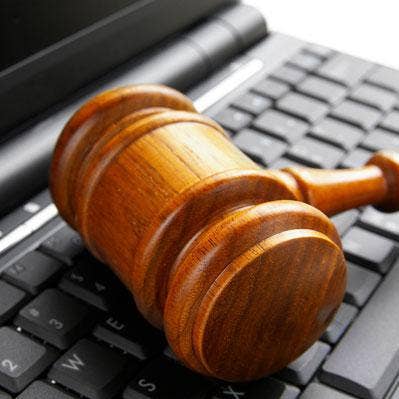Huawei Sues U.S. Government Over Security Law As Tensions Run High

Huawei is suing the United States government over a ban that prohibits the use of the embattled Chinese telecom provider's equipment in the U.S.
Huawei is specifically fighting back against Section 889 of the National Defense Authorization Act (NDAA) that was signed into law by President Donald Trump last August. The law blocks federal agencies and their contractors from procuring Huawei's equipment and services. Huawei filed its official complaint in a federal court in the Eastern District of Texas on Wednesday.
The lawsuit comes at a time in which relations between the U.S. and China are strained due to rising tariffs between the countries and the December arrest of Huawei’s CFO, Meng Wanzhou, in Canada at the behest of the U.S. because of alleged illegal activities during her time as head of a Huawei-affiliated company.
[Related: Struggling Huawei Pleads Not Guilty To Trade Secret Theft, Wire Fraud In U.S.]
The ban followed reports that Huawei has been involved in alleged Chinese espionage efforts. The U.S. isn't the only country concerned. Countries such as Germany, France, Belgium, Japan, and the United Kingdom also revealed their own concerns about Huawei's presence within its telecom infrastructure. Australia blocked both Huawei and its peer, Chinese telecom provider ZTE Corp. from supplying equipment to the country's 5G network, and New Zealand also banned the use of Huawei equipment for its own 5G network buildout.
Huawei has consistently denied any wrongdoing.
“The U.S. Congress has repeatedly failed to produce any evidence to support its restrictions on Huawei products. We are compelled to take this legal action as a proper and last resort,” Huawei deputy Guo Ping said during a press conference in Shenzhen. “This ban not only is unlawful, but also restricts Huawei from engaging in fair competition, ultimately harming U.S. consumers. We look forward to the court’s verdict.”
According to Huawei's court filing, Section 889 places burdens and sanctions on the provider without a fair hearing or the opportunity to rebut the security allegations.
“In short, Section 889 is not only contrary to the economic interests of the United States and its citizens, and ineffective at advancing U.S. security interests, it is also contrary to the Constitution of the United States,” the company claims in the filing, explaining that “the Framers of the United States Constitution were deeply concerned about the potential abuse of legislative power.”
The filing states that “the Framers believed that, if the legislature could itself sanction specific persons “without hearing or trial” conducted by the Executive or the courts, ‘no man can be safe, nor know when he may be the innocent victim of a prevailing faction.’”
Meanwhile, Canada said last week that it would begin extradition proceedings for Meng to the U.S. in a process that started on Wednesday. Meng is currently under house arrest in Vancouver.
Meng, the daughter of Huawei's co-founder Ren Zhengfei, is suing Canada over her detention in Vancouver. The Huawei executive filed a claim earlier this week against the Canadian government, its border agency and the national police force. Meng's lawyers say they detained, searched and interrogated her before telling her she was under arrest.
Separately, the struggling Chinese telecom last week pleaded not guilty in a Seattle court to U.S. charges of trade-secret theft related to T-Mobile, conspiracy to steal trade secrets, seven counts of wire fraud, and one count of obstruction of justice.
A Department of Justice spokesperson declined to comment on the lawsuit.
David Harris contributed to this story.